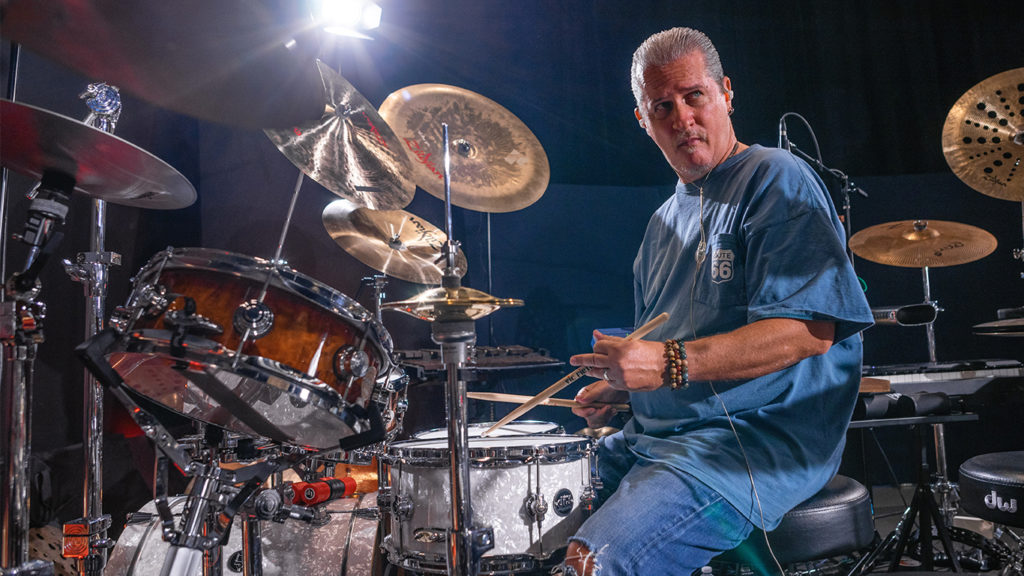Gerry Gibbs’ Approach to Drum Set Dynamics
How do you approach dynamics on the drum set?
It’s something I’ve thought about for a long time. Working with the great bassist Ron Carter, we’ve discussed this too—not because he told me to, but because it’s something that bothers him with other drummers. It’s about playing your drums with dynamics that fit what’s happening. For instance, hitting the bass drum really loud when the rest of the drums are playing at a different volume. It’s not wrong to play louder, but if I intend to make the bass drum louder, it should be intentional.
I’ve had the opportunity to be on stage with jazz masters—some of the greatest of all time. And they each had their preferences. For example, I could be on stage with someone like James Moody and Clark Terry at the same time, and they’d want completely different things from me behind them, even if we were playing the same song. It’s about understanding what each musician needs from you and adjusting accordingly.
This is something you spend your entire career learning. I talk about this a lot when I do clinics across the country—having a lot of resources. For example, when playing with a band, I can often tell who the musicians are influenced by. The bass player might be channeling Paul Chambers or Charles Mingus, while the piano player could be coming out of a more avant-garde Herbie Hancock style. Meanwhile, the saxophone player could be drawing from Stan Getz or Zoot Sims. I’m constantly assessing where everyone is coming from musically, and I adjust my playing to support that.
Sometimes, the piano player might not be harmonically listening to the saxophone, and it’s creating tension. In that case, I’ll try to help the sax player by not forcing him into something that’s not natural for him. It’s about understanding what’s happening musically and making it work.
I’m constantly reading the situation and adjusting my approach. For instance, when I played with Clark Terry, I knew what he liked, and I’d give him that. I’d also play with someone like Les McCann, and for him, it was about the groove. I knew he would enjoy a certain feel, maybe at a different tempo, but still, it’s about knowing who you’re playing with and what will make them feel comfortable.
A lot of younger musicians today may only study players from the last 20 years, but they miss the fact that those players were listening to people from 50 years before them. The more you study, the more you can understand where your bandmates are coming from and what might help them musically. Ron Carter once told me, “Let me make you and Kenny sound good.” That’s his approach. He wants to support the band, and I try to do the same thing as a drummer. Even if I play something intricate or wild, it has to fit because I understand who I’m playing with. My resources help me know what’s going to work for each musician I’m supporting.
At this stage in my career, I don’t always need to ask, but if I’m playing with someone new, I’ll still say, “If there’s something you need, let me know.” Sometimes musicians will tell me, “Give me more straight-ahead time,” or “Give me more volume.” Even avant-garde players might ask for something specific, like, “Play these bars really clear so I know where we are.” It’s important to be open to feedback and make adjustments. A lot of drummers go into a gig thinking about what they want to play rather than what the band needs. But being flexible and responsive is key. Some people might think, “Well, then you’re not bringing yourself.” But that’s not the case. You’re still bringing your personality to the music. People hire you because they want your style, but you also have to be adaptable.
One of the greatest compliments I ever got was from Ron Carter. He said, “You trust me.” At first, I didn’t understand what he meant, but he explained that I played in a way that allowed him to make the decisions without feeling like I needed to guide him. I strive for that in my playing—to be intuitive and supportive. It’s not just about what I’m doing on the drums; it’s about making the entire band sound good. It opens up so many possibilities when you listen and respond to the musicians around you.
Full Lesson HERE!


